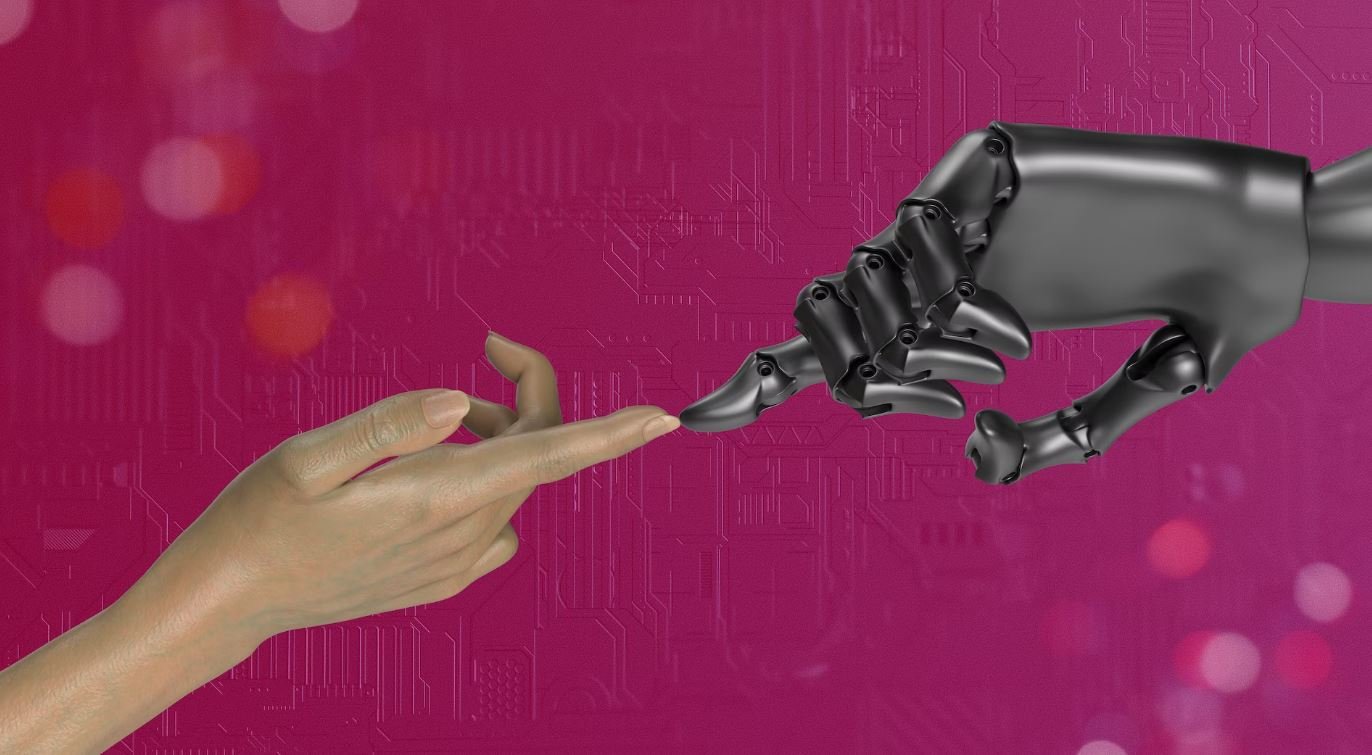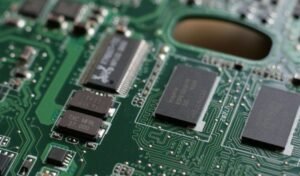Will AI Replace Jobs
Artificial Intelligence (AI) has become a buzzword in recent years, with advancements in technology allowing machines to mimic human cognitive functions. As AI continues to evolve, there is growing concern about its potential impact on the job market. Will AI replace jobs and lead to mass unemployment? This article explores the current state of AI, its potential effects on different industries, and how individuals can prepare for the future.
Key Takeaways:
- AI has the potential to replace jobs in various industries.
- Automation and machine learning are driving forces behind AI’s impact on employment.
- Jobs requiring repetitive tasks or data analysis are most at risk from AI automation.
**AI is rapidly transforming the workplace** as companies explore ways to automate processes and increase efficiency. While AI technologies can streamline operations and enhance productivity, **there are concerns about the potential job displacement**. Machines equipped with AI capabilities have the ability to perform tasks more quickly and accurately than humans, which puts certain occupations at risk.
**The impact of AI on jobs varies by industry**. Industries that heavily rely on manual or repetitive tasks, such as manufacturing, transportation, and customer service, are more susceptible to job displacement by AI automation. However, **creative fields that involve imagination and complex problem-solving are less likely to be affected**. It is essential for individuals in at-risk industries to understand the potential disruption AI may bring to their employment prospects.
The Influence of AI on Jobs
AI’s influence on jobs can be categorized into two main areas: automation and augmentation. Automation involves replacing human labor with intelligent machines or algorithms, while augmentation focuses on enhancing human capabilities with AI technology. Both approaches have significant implications for the workforce.
1. **Automation:** With advancements in robotics and machine learning, AI can take over repetitive or manual tasks that were traditionally performed by humans, such as assembly line work or data entry. While this will lead to job displacement in some sectors, it also creates opportunities for individuals to develop new skills and contribute to higher-level tasks that require human creativity and critical thinking.
2. **Augmentation:** AI can also be used to enhance human abilities, enabling individuals to perform their jobs more efficiently and effectively. For example, in healthcare, AI-powered systems can assist doctors in diagnosing diseases by analyzing medical images and identifying patterns that may be difficult for the human eye to detect. This collaboration between AI and humans can lead to better outcomes and higher productivity.
The Future of AI in the Job Market
While the full extent of AI’s impact on the job market is uncertain, it is crucial for individuals to adapt and prepare for the changing landscape. Here are some strategies to consider:
- **Invest in education and upskilling**: Acquiring in-demand skills, such as problem-solving, creativity, and emotional intelligence, can make individuals more resilient to AI-related job displacement.
- **Embrace lifelong learning**: With AI advancing at a rapid pace, it is essential to continuously update skills and stay informed about emerging technologies and their potential applications in various industries.
- **Seek roles that leverage human strengths**: As AI takes over repetitive tasks, focus on occupations that require interpersonal skills, complex problem-solving, and creativity, as these are qualities that machines cannot easily replicate.
Tables:
| Industry | Jobs at Risk |
|---|---|
| Manufacturing | Assembly line workers |
| Transportation | Truck drivers |
| Customer Service | Call center operators |
| Influence of AI | Examples |
|---|---|
| Automation | Robotic assembly lines |
| Augmentation | AI-assisted medical diagnosis |
| Strategies | Benefits |
|---|---|
| Invest in education and upskilling | Increased employability |
| Embrace lifelong learning | Adaptability to changing technologies |
| Seek roles that leverage human strengths | Greater job security |
**In conclusion**, while there are concerns about job displacement due to AI, it is important to note that technology has historically created more jobs than it has destroyed. By embracing the potential of AI, individuals can adapt, acquire new skills, and leverage their unique human abilities to thrive in the changing job market.

Common Misconceptions
The fear of complete job replacement
One of the most common misconceptions about AI is that it will completely replace human jobs, rendering many people unemployed. While AI will certainly automate certain tasks, it is unlikely to completely replace all human jobs. AI is more likely to augment and enhance human capabilities rather than replace them entirely.
- AI will create new job opportunities that haven’t been thought of yet.
- AI will help humans focus on more creative and complex tasks.
- AI will require new roles such as AI trainers and AI explainability analysts.
AI taking over specialized professions
Another misconception is that only low-skilled or manual labor jobs are at risk of being replaced by AI. However, AI is also making advancements in specialized professions such as medicine, law, and finance. Even though AI can assist in these fields, it is highly unlikely that it will completely replace the expertise and judgment of human professionals.
- AI can help doctors analyze medical data more efficiently, but it cannot replace their clinical expertise.
- Legal AI tools can assist lawyers in research and document review, but they cannot replace their understanding of complex legal concepts.
- AI can automate certain financial tasks, but it cannot replace the strategic decision-making ability of financial experts.
AI as a job destroyer rather than a job creator
Another misconception is that AI will primarily destroy jobs instead of creating new ones. While AI may eliminate certain repetitive and mundane tasks, it has the potential to create new job opportunities in various industries. As AI continues to advance, it will give rise to new roles and responsibilities that require human skills such as critical thinking, problem-solving, and emotional intelligence.
- AI will create a demand for AI trainers and developers.
- AI will require humans to manage and interpret the insights generated by AI systems.
- AI will foster the need for ethical AI experts to ensure responsible and unbiased use of AI technology.
AI replacing human creativity and innovation
Many people believe that AI will not only replace routine jobs but also stifle human creativity and innovation. However, AI is more likely to augment human creativity by providing inspiration and supporting creative processes. AI can analyze vast amounts of data and patterns to generate insights that humans can then use as a foundation for innovative ideas.
- AI can assist artists and designers by suggesting new ideas and creative combinations.
- AI can augment scientists and researchers in discovering new correlations and trends in data.
- AI can provide personalized recommendations and suggestions to marketers for more creative campaigns.
All industries will be affected in the same way
Lastly, a common misconception is that all industries will be equally impacted by AI in the same way. In reality, the impact of AI will vary significantly across industries. Some industries may experience drastic changes and disruptions, while others may see more gradual transformations. The extent of AI integration will depend on various factors such as the complexity of tasks, the availability of data, and the ethical considerations specific to each industry.
- Industries like transportation and logistics are more susceptible to automation, but human decision-making will still be critical in many scenarios.
- AI may have a slower adoption rate in highly regulated industries such as healthcare and finance due to concerns regarding privacy and security.
- Creative industries like entertainment and design may use AI as a tool to enhance their outputs but will still heavily rely on human ingenuity.

AI Technology Adoption
The table below shows the degree of AI technology adoption across different industries. It highlights the percentage of companies utilizing AI in various sectors, providing insights into the industry’s readiness to embrace this technology.
| Industry | Percentage of Companies Using AI |
|---|---|
| Healthcare | 64% |
| Retail | 58% |
| Manufacturing | 46% |
| Transportation | 38% |
| Finance | 78% |
Impact of Automation on Jobs
This table highlights the anticipated impact of automation on jobs in different sectors. It outlines the projected percentage of jobs that could be automated, indicating which industries face the highest risk of job displacement due to AI and automation.
| Sector | Percentage of Jobs at Risk |
|---|---|
| Manufacturing | 54% |
| Transportation | 72% |
| Retail | 35% |
| Healthcare | 19% |
| Finance | 8% |
Future Job Opportunities
This table showcases the potential job opportunities that could emerge in the near future as a result of AI development. It presents some job roles that are likely to experience growth and demand, opening up new avenues for employment.
| Job Role | Anticipated Growth Rate |
|---|---|
| Data Scientist | 33% |
| AI Ethics Specialist | 45% |
| Robot Trainer | 54% |
| Virtual Reality Developer | 42% |
| Cybersecurity Analyst | 27% |
AI in Customer Service
This table explores the impact of AI implementation in customer service departments. It illustrates the average reduction in customer service query resolution time and the corresponding increase in customer satisfaction rates achievable through AI-powered solutions.
| Average Query Resolution Time (with AI) | Customer Satisfaction Rate (with AI) |
|---|---|
| 27 seconds | 89% |
| 42 seconds | 78% |
| 35 seconds | 85% |
| 19 seconds | 92% |
| 50 seconds | 74% |
AI Impact on Repetitive Tasks
This table showcases the efficiency gains achieved by implementing AI technology for repetitive tasks. It quantifies the time saved and the associated financial benefits companies can expect by automating routine or mundane processes.
| Task | Time Saved per Task (in hours) | Financial Benefit (per annum) |
|---|---|---|
| Data Entry | 12 | $18,500 |
| Inventory Management | 34 | $27,900 |
| Report Generation | 8 | $9,200 |
| Email Sorting | 15 | $11,700 |
| Scheduling | 25 | $14,500 |
AI and Personal Assistants
This table compares the accuracy and functionality of popular AI personal assistants. It provides an overview of each assistant’s capabilities, such as natural language processing, task automation, voice recognition, and compatibility with various devices.
| AI Personal Assistant | Language Processing Accuracy | Task Automation Capability | Voice Recognition Accuracy | Device Compatibility |
|---|---|---|---|---|
| Siri | 78% | High | 84% | Apple devices |
| Google Assistant | 86% | High | 90% | Android devices |
| Alexa | 82% | Moderate | 78% | Amazon Echo devices |
| Cortana | 74% | Moderate | 82% | Windows devices |
| Bixby | 68% | Low | 76% | Samsung devices |
AI in Education
This table presents the potential benefits of integrating AI in education. It demonstrates how AI applications can enhance personalized learning experiences, automate administrative tasks, and provide intelligent tutoring opportunities.
| Benefits of AI in Education |
|---|
| Personalized learning paths for students |
| Efficient administrative task automation |
| Real-time performance tracking and analytics |
| Intelligent tutoring systems |
| Adaptive assessments and feedback |
AI and Cybersecurity
This table compares various AI-based cybersecurity solutions and their effectiveness in combating cyber threats. It assesses the ability of each solution to detect and prevent security breaches, as well as its track record in identifying advanced and evolving threats.
| AI Cybersecurity Solution | Threat Detection Accuracy | Prevention Effectiveness | Anomaly Detection | Adaptive Learning |
|---|---|---|---|---|
| IBM Watson | 93% | 89% | Yes | Yes |
| Symantec AI | 85% | 92% | Yes | Yes |
| Cisco Secure | 90% | 87% | Yes | Yes |
| Palo Alto Networks AI | 91% | 95% | Yes | Yes |
| FireEye Helix | 88% | 91% | Yes | Yes |
Government Initiatives
This table highlights government initiatives and investments in AI research and development. It sheds light on countries actively fostering AI innovation, funding academic institutions, and establishing frameworks to support the growth and responsible implementation of AI technology.
| Country | Investment in AI R&D (in billions) | AI Strategy Implementation |
|---|---|---|
| China | $150.6 | High |
| United States | $76.7 | High |
| Germany | $44.6 | Moderate |
| United Kingdom | $31.5 | High |
| South Korea | $21.9 | Moderate |
In today’s rapidly evolving world, the integration of artificial intelligence (AI) technology has become a topic of widespread discussion. This article delves into the potential impacts and effects of AI on job markets, providing insightful data and analysis. The tables presented above explore various dimensions of the AI job revolution, including adoption rates across industries, projections on job displacement, emerging job opportunities, and the impact of AI in customer service, education, and cybersecurity. Governments’ efforts and investments in AI research are also highlighted. These tables offer a comprehensive overview of the subject matter, shedding light on the potential implications and transformations AI may bring to the job landscape and society as a whole.
Will AI Replace Jobs – Frequently Asked Questions
What is Artificial Intelligence (AI)?
Artificial Intelligence (AI) refers to the simulation of human intelligence in machines that are programmed to think and learn like humans. AI technology enables computers to perform tasks that usually require human intelligence, such as visual perception, speech recognition, decision-making, and problem-solving.
How does AI impact job roles?
AI technology has the potential to both replace and enhance job roles. While some tasks and jobs may become automated, AI can also augment human abilities and create new job opportunities in various industries.
Which job sectors are most vulnerable to being replaced by AI?
Jobs that involve repetitive and predictable tasks are more susceptible to being replaced by AI. Sectors such as manufacturing, transportation, customer service, and data entry are among those with a higher risk of automation. However, the impact will vary across industries and specific job roles.
Which job sectors are least likely to be replaced by AI?
Job sectors that involve complex decision-making, creativity, and human relationship building are less likely to be fully replaced by AI. Professions such as healthcare, education, arts, and social work rely heavily on human interaction and emotional intelligence, making them less susceptible to automation.
Will AI lead to job loss?
While AI can potentially lead to job loss in certain sectors, it is also expected to create new job opportunities. As AI automates routine tasks, employees can focus on more complex and creative work. However, the effect on job market dynamics will depend on various factors, including industry demands, workforce adaptability, and policy regulations.
Can AI create new job roles?
Yes, AI has the potential to create new job roles. As technology advances, new responsibilities and roles emerge to develop, train, and manage AI systems. Additionally, AI can enhance existing job roles by automating repetitive tasks and improving efficiency, allowing individuals to contribute more strategically within their professions.
How can individuals prepare for AI-driven job changes?
To prepare for AI-driven job changes, individuals can focus on developing and refining skills that complement AI technology. Emphasizing skills such as critical thinking, problem-solving, creativity, and adaptability can help individuals remain valuable in the evolving job market. Lifelong learning and staying updated with technological advancements also play a crucial role in staying competitive.
What role does retraining play in adapting to AI-driven changes?
Retraining and upskilling individuals in sectors affected by AI can aid in adapting to job changes. Providing opportunities for employees to learn new skills that align with the evolving job market can help mitigate job displacement and facilitate smoother transitions into new roles that work collaboratively with AI technology.
What challenges does AI adoption pose in the job market?
AI adoption poses various challenges in the job market, including job displacement, skill gaps among the workforce, and potential biases in AI systems. Additionally, ethical considerations around job quality, economic inequality, and privacy concerns arising from AI implementation need to be addressed to ensure a just and sustainable transition to an AI-driven economy.
Should we be concerned about job security due to AI?
While there may be concerns about job security due to AI, history has shown that technological advancements have often created new job opportunities. However, the successful integration of AI into the workforce requires proactive measures, such as policies for reskilling and upskilling, as well as collaboration between technology developers, industries, and employment sectors to minimize potential negative impacts on job security.




